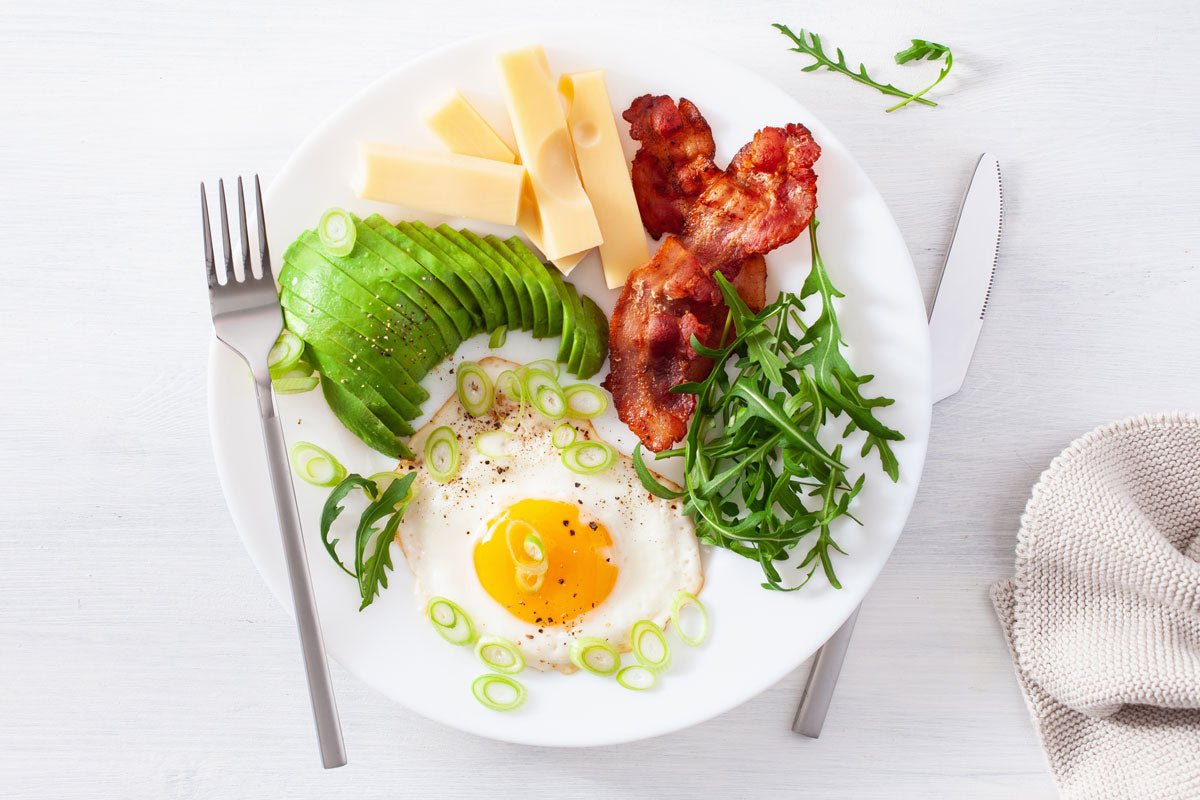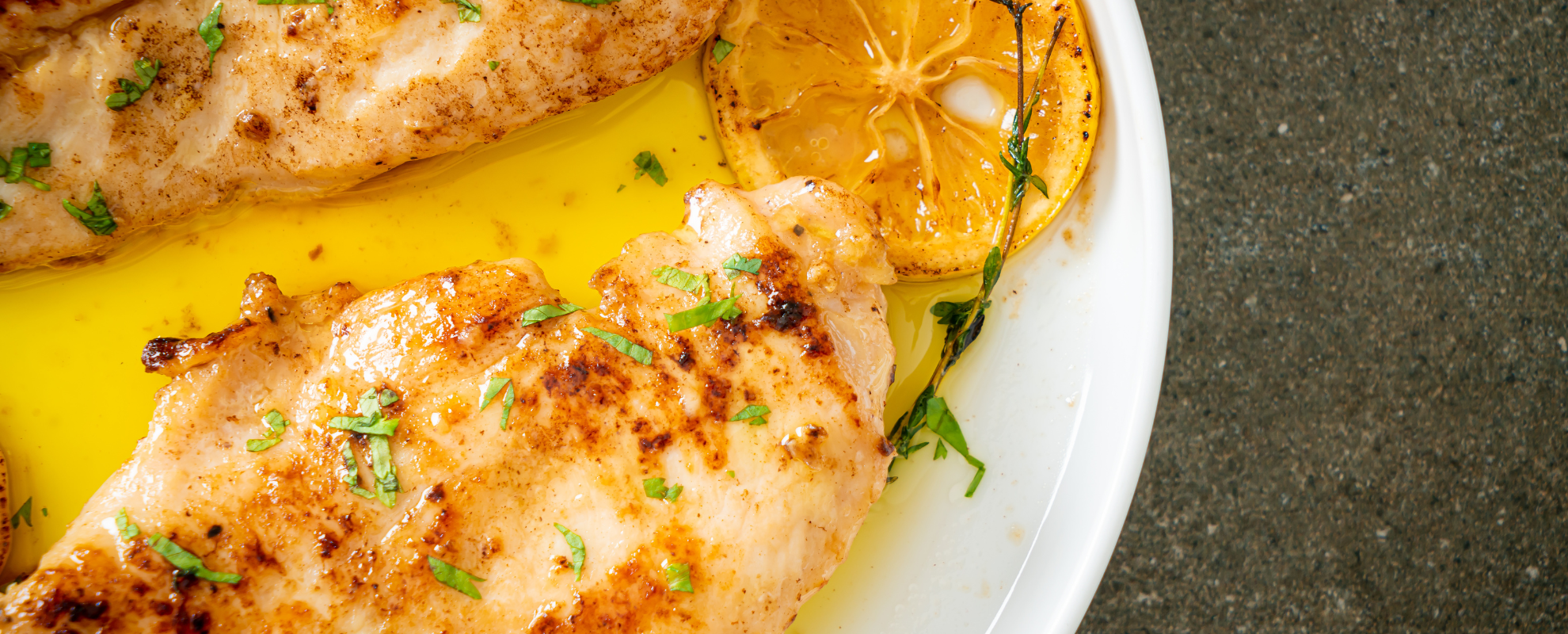How a Fat Fast can help you lose weight
Before we discuss the details of doing a fat fast on the SLIMTOX Program, I think it’s important for you to understand some basic physiology in regard to ketogenic weight loss. We are big believers that the more you know about how it works and why it works, the more success you will have on the SLIMTOX Program and beyond.
The Fat Fast is not a new concept, it has been around for many years. The first proponent of using fat fast to break through a weight loss plateau or "reset" a cheat day was Dr Robert Atkins himself in his best-selling book Dr Atkins New Diet Revolution.
Here is the general rule that applies to a ketogenic diet: When you restrict carbohydrates to a certain level (20-50 grams of net carbs), your body starts producing ketones and you enter “ketosis”.
Ketosis is when you tap into those unwanted fat reserves and convert those calories into usable energy. In fact, ketosis is the ONLY way to achieve healthy weight loss. And in this regard, the quality of the calories you eat is actually more important than the quantity of calories you eat.
Can a Fat Fast be used for correction days or stalls?
If you’ve read Dr. Simeons’ original HCG diet protocol, Pounds and Inches; A New Approach to Obesity, he somewhat pioneered the fat fast with what he called a “steak day.” He suggested that if you slip up on the low calorie phase or if you noticeably begin gaining weight while on the maintenance phase of your HCG diet protocol, you eat steak. That’s right, you eat a large steak and a couple of tomatoes. We can’t exactly explain the tomatoes, maybe he just likes tomatoes, but the reason for the steak is because it is high in both fat and protein. Both keto friendly.
Don’t get this confused with Dr. Simeon’s “apple day.” In fact, we aren’t going to waste your time in describing his “apple day” theory because the physiology makes ZERO sense. But if you’re curious, you can read more about the apple day on his original HCG protocol (search google).
How do I Fat Fast?
Fat Fast is a type of fasting often recommended for those who are already keto-adapted and reach a weight loss plateau. The idea is that you eat about 80-90% of your calories from fat while keeping your calorie intake low, up to 1000-1200 kcal a day. This fast should be followed for no more than 3-5 days. If you follow fat fast for a longer period, you run the risk of getting your body into starvation mode, lose healthy lean muscle mass and get deficient in essential nutrients.
When you go on a fat fast and you are already keto-adapted, your ketone level will likely get very high. Because most of the energy (that is limited to 1000-1200 kcal) comes from fats, your body enters lipolysis and starts using fat stores for energy.
Because most of your calories will come from fat (90%), you have to make sure to include healthy fats such as monosatured fats, Omega 3s and saturated fats.
The traditional Fat Fast guidelines advice is to eat 4-5 small meals a day, each about 200-250 kcal. This is totally up to you. If you prefer to have 1-2 regular meals, it's perfectly fine. You should follow the fat fast for 2 days (do it on a weekend). Keep in mind that the fat fast is NOT like the loading phase of a HCG Diet Program. Unfortunately, you can’t chow down on unlimited fats. You still must be accountable and conscious of what fats and calories you are eating.
What do I eat during Fat Fasting Days?
Eat fatty foods. A surf and turf with steak and salmon is absolutely ideal. Keep in mind that you ALWAYS want a 1:1 ratio of good fats to bad fats. By good fats I’m referring to Omega 3 fats while the bad fats are the Omega 6 fats. This is true for the fat fast, and the lifestyle phase of our program. If you can keep to a 1:1 on your fats, your chances of making your weight loss truly sustainable increase several fold.
- Start your day off with some fatty calories (an egg with bacon is perfect) but fast throughout the day and eat a big meal for dinner.
- ZERO CARBS. Vegetables are fine, but NO ROOT VEGETABLES (such as carrots, turnips, onions). Root veggies are very high in carbs. An onion, for example, has as many calories and carbs as an apple. Hard to believe, but true. To repeat, keep your carbs as close to zero as possible with the exception of vegetables. I know that vegetable do contain minimal carbs. If you want to make your weight loss truly sustainable, developing a taste for veggies is critical.
When To Fat Fast
There are really only two occasions to fat fast and one occasion NOT to fat fast. See below…
1. Correction Day
If you fall off the wagon and go crazy with a carb overload, do a 2 day fat fast. This will put you back into an optimal state of ketosis. We warn you though, if you slip up with too many carbs you’re only making things more difficult on yourself. When you fall out of ketosis, you won’t be supplied with ketone calories from stored fat. Without these additional calories, you’ll be hungry. That’s why the original HCG diet was so gruelling – because it had enough carbs (fruit and bread sticks) to keep you teetering on ketosis, but not fully in it.
2. When you hit a stall
Stalls are not always stalls. You’re not going to hit a stall within the first 2 weeks of your diet and likely not within the first 3 weeks. There is more info on that below, but if you don’t see the scale move for more the 3-5 consecutive days, consider the fat fast. There is no reason not to. It’s low carb and if you maintain a 1:1 of O3s to O6s, it’s actually quite healthy. And if for nothing else, it will give you peace of mind following a rough day. Relax, you’ll still lose your 7kg -10kg in 26 days. Trust us!
3. When NOT to do a Fat Fast
You should not do a fat fast when you’re within 16 days of starting your SLIMTOX Program. This gives you two weeks of low carb days. If you think you’ve stalled within the first two weeks, you’re wrong. You’re not stalled, you’re retaining water for one reason or multiple reasons. The fat fast is for dieters that have become keto-adapted. That means your body is so determined to maintain its fat reserves that it intelligently resets its ketosis point. When this happens you need to lower your carbs to maintain ketosis (remove fruit from your program) and the fat fast is a great way to jump start that. You absolutely will not become keto-adapted within the first 2-3 weeks of your diet, so don’t attempt the fat fast within the first 16 days. Save it.
Can I do more than one Fat Fast during the program?
Sure. Like I said, it’s low carb and if you maintain your 1:1 you have nothing to worry about while doing the program. In fact, enjoy your surf and turf. You may also want to consider the fat fast if you have a dinner obligation (If you do, just step away from the bread rolls and the hot chips).
Sustainable weight loss is about finding a balance between. Food is meant to be enjoyed and if you consume wisely, that is entirely possible.
One last thing
Most importantly, if you had a bad day and feel the need for a "correction day", don’t panic. Same for a stall. The scale isn’t always going to be your friend, even if you’re making all the right decisions. That’s why we now suggest to stay off of it. Keep doing the right things and you will lose approximately 7 kilograms in 30 days. Focus on lifestyle change rather than results. Commit to being a healthier version of yourself. Especially if you have a lot of weight to lose and you’re just getting started. The more permanent you want to make your weight loss, the more permanent you need to make changes to your lifestyle.


